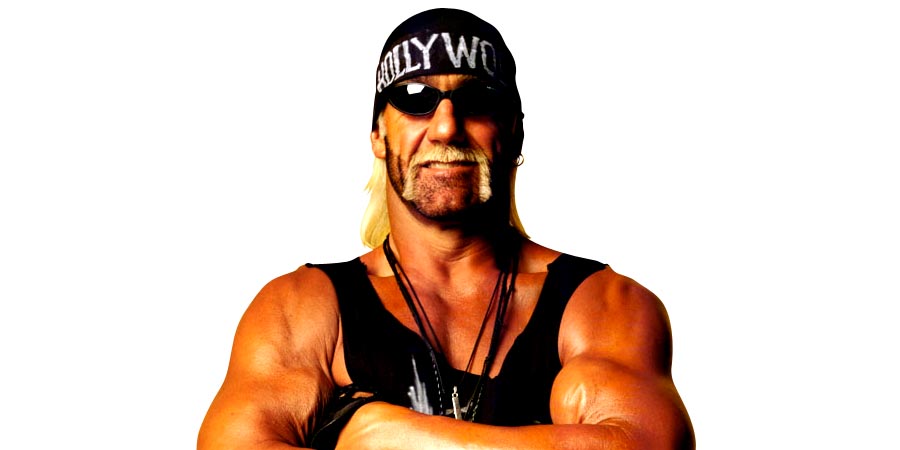• OLD SCHOOL HISTORY (May 6, 1996) – WCW MONDAY NITRO
On this day in 1996, Ted Turner’s World Championship Wrestling aired another LIVE episode of their weekly TV show ‘WCW MONDAY NITRO’.
It was broadcasted from the the Ocean Center in Daytona Beach, Florida and featured matches, interviews & storyline segments on the road to the ‘WCW Slamboree 1996’ PPV.
The card can be found here:
1. Hugh Morrus vs. Randy Savage
2. Dean Malenko vs. Jushin Liger
3. Sting vs. Steven Regal
4. The Giant vs. Jim Duggan
WATCH: New Video Of Alexa Bliss’ Hot Buns In Action:
• Eric Bischoff Explains Why Vince McMahon Was A Genius For Burying Hulk Hogan After The Steroid Trial In 1994
During a recent edition of the “83 Weeks” podcast, former WCW President Eric Bischoff talked about how Vince McMahon was a genius for burying Hulk Hogan after the Steroid Trial in 1994 and how Vince portrayed himself as the underdog in his battle with WCW.
Below is what Bischoff said:
“It is fascinating, you know. And it was genius on Vince’s part, and I don’t throw that term around very often. But it’s one of the things that Vince did right from the beginning. I mean, the minute he started — you know, his first reaction to us going head-to-head with him or hiring Hulk Hogan.
Here’s what’s really interesting. If you go back and look at prior to Hogan coming to WCW, just prior, when the steroid trial was over. When Hulk Hogan got on the stand and denied that Vince McMahon sold him steroids, or injected him or anything like that.
When Hulk Hogan said the opposite of what the government was hoping to hear, and that trial was over, Vince McMahon came out on the steps and buried Hogan. Buried him! After Hogan had just basically said everything that he said. It probably had a lot to do with Vince McMahon being found not guilty. The first thing Vince did was go out and bury him. Why? Because he knew Hogan was coming to WCW.
Now that, to me, is a very focused individual. It’s not about personal, it’s not about the truth, it’s not about facts. It’s ‘What do I need to do to protect my business? I’ll do whatever, say whatever, act however I need to in order to protect my family business.’ And I actually admire that in him. I do. I don’t think I could do it. I don’t think I have that — I’m not wired quite that way.
I may be close in some respects, but I don’t think I could go as far as Vince did then, quite honestly. But it represents who I think Vince McMahon really was at that time. And he was fighting for his life. He was fighting for his, however many generations. I think his great-grandfather or, longer than that, started the WWWWWWWF, back whenever. So much of what he was feeling was very true, but a lot of what he’s saying, or he was saying back at the time wasn’t. And this is a perfect example.
But the genius is not just misleading or lying. That doesn’t take much of an imagination. The genius is when he made the decision early on, to position himself as the underdog. I cannot overemphasize enough of how important that was in the ultimate — the last scene of the last act, right? That really is — he stuck with it. He not only galvanized his team, which is something you have to do. If the people around you think the wheels are falling off, they’re going to scatter like rats on a sinking ship.
So you’ve got to keep your team together. You’ve got to say, do act, whatever it takes to keep the team together. Because once you lose your team, and you don’t have the infrastructure, you’re toast. And he kept his team together by playing that underdog. And he was. I’m not suggesting he was pretending he was the underdog.
At that point, he was, because it was Time-Warner. It was Turner. We did own our own networks, we did have a lot of very, very unique advantages. But we had some very unique disadvantages as well that he didn’t have. But he didn’t talk about that. He talked about Big Bad Billionaire Ted, and ‘We don’t have the resources’ and ‘We’re a small little family-owned business.’
Without any guilt over what he had previously done to all of the other territories, and all of the other people he put out of business, and all of the other people that he literally stole from territories by offering them at least what was perceived to be much better deals.
Forget all about that stuff! Yeah, he was Attila the Hun up to this point, but now that somebody else was coming along and gaming him, all of a sudden he was a poor little mistreated boy in the schoolyard and all of the bullies are picking on him. And he did that to galvanize his team, he did that to galvanize his audience, because he had a loyal audience base he had developed for generations really, in the Northeast and around the country at this point.
There were a lot of very loyal WWF fans. And for Vince to be able to publicly portray himself as the underdog who was getting just bulling and beat up upon by this entity called Time-Warner and this southern guy with a big mouth called Ted Turner and this little punk named Eric Bischoff.
The more he could create that image and picture, the more loyal that fanbase became. The more they were rooting for him to win. And that’s what he needed at that point. Therein lies the genius is his ability to play the underdog when he really wasn’t.”

